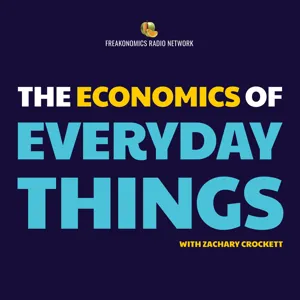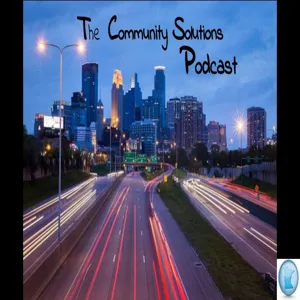Podcast Summary
Private Jet Travel: A Luxurious Alternative for the Wealthy: Private jet travel offers convenience, luxury, and personalized service for the wealthy, but comes with environmental costs and subsidies that are not fully accounted for.
While most people find air travel to be a frustrating and unpleasant experience, for the ultra-wealthy, private jet travel offers a luxurious and convenient alternative. With the ability to pull up right to the plane, personalized service, and in-flight amenities like gourmet meals and full-size beds, private jet travel is a desirable option for executives and celebrities. However, critics argue that the environmental costs and subsidies for this elite group are not fully accounted for by the individuals using these services. The private jet industry is growing rapidly, with over 23,000 private planes in use last year, and the majority of these jets are used for business and pleasure by the wealthy.
Costs of Private Flying: From $7M to $1M+ per year: Private flying entails high upfront and ongoing costs, ranging from $7M for a jet to $1M+ yearly, with fractional ownership and chartering as alternatives.
Private flying comes with significant costs. If you have the means to buy a jet outright, prices range from $7 million for a light jet to over $75 million for larger models, with ongoing expenses like fuel, parking, pilots' salaries, maintenance, insurance, and depreciation adding up to over $1 million per year. Alternatively, fractional ownership allows multiple individuals to share the cost of a jet, or chartering offers the private flying experience without the ongoing expenses, with hourly rates ranging from $6,000 for a light jet to $15,000 for a super midsize aircraft. Ultimately, Magellan Jets aims to provide a comfortable, seamless private flying experience for its clients, serving over 1200 clients and traveling to 80 plus countries annually.
Maximizing Executive Time with Private Jet Solutions: Private jet solutions offer significant time savings and convenience for high-level executives, enabling them to make the most of their valuable time through chartering jets, jet membership cards, and fractional ownership.
Magellan Jets offers various private jet solutions for individuals and corporations, allowing them to make the most of empty flights and downtime. These options include chartering jets, jet membership cards, and fractional ownership. While these services are more expensive than commercial flights, companies often cover the costs for their high-level executives to maximize their valuable time. With access to over 5,000 airports in the US alone, private jet travel offers significant time savings and convenience. For instance, CEOs like Doug McMillon of Walmart, who earn high salaries, often fly privately to save valuable time.
Private jets: A luxury business tool with significant costs: Private jets offer time savings and business opportunities but come with high costs, environmental impacts, and income inequality concerns.
Private jets offer corporations and executives significant time savings and opportunities for business development, but come with a high price tag and contribute to income disparities. The ability to travel quickly across long distances allows for more efficient business operations and client entertainment, justifying the substantial costs for some companies. However, critics argue that the environmental and social costs, as well as the tax advantages, make private jet travel an indefensible form of luxury consumption that exacerbates income inequality. Chuck Collins, a program director at the Institute for Policy Studies and a member of the Patriotic Millionaires, has been particularly vocal about the negative impacts of private jet travel and the need for greater taxation and regulation to address the issue.
Subsidized by Commercial Travelers and Taxpayers: Private jets account for a small percentage of airspace usage but are heavily subsidized by commercial travelers and taxpayers through taxes and fees.
Private jet travel is subsidized by commercial travelers and taxpayers, despite private jets accounting for only 16% of airspace usage but contributing only 2% to the operating costs. The majority of the costs, including taxes and fees, are paid by commercial travelers and taxpayers. Private jet owners, particularly those who own their own jets, enjoy significant tax benefits, including a fuel tax of just 22¢ per gallon and the ability to deduct the entire cost of a new jet in the first year for business use. The lobbying efforts of private jet associations, which have spent over $68 million since 2010, have led to allowances that blur the line between business and pleasure travel, and have also focused on increasing privacy for private jet travelers. However, efforts to keep private jet travelers' names off public tracking registries have been met with workarounds by savvy Internet users.
Private jets' carbon footprint and national security concerns: Private jets emit more carbon per passenger than commercial jets, contributing significantly to aviation's 3% carbon emissions. Efforts are underway to offset and reduce emissions, but individuals can also opt for alternative transportation for short trips.
While private jet ownership offers convenience and privacy, it also raises concerns regarding national security and environmental impact. Private jets burn significantly more carbon emissions per passenger than commercial jets, with notable figures like Elon Musk contributing large amounts of jet fuel consumption annually. Short flights taken by wealthy individuals could be avoided by using other modes of transportation, and the overall carbon footprint of aviation, including private aviation, represents only about 3% of the total carbon emissions. However, efforts are being made by private jet outfits and industry associations to offset these emissions through carbon credits and reduce overall emissions by half by 2050. It's important to consider these impacts and explore alternative solutions.
Debate over Fuel Taxes and Banning Private Jets: Some politicians propose fuel taxes or bans for private jets, but these actions may increase consumer costs and reduce sustainability. An alternative solution could be persuading wealthy individuals to sell their jets, promoting more affordable and eco-friendly transportation.
There's a current debate in Congress about increasing fuel taxes for private jets to fund clean and affordable transportation. Some politicians have even proposed banning private jet flights altogether. However, some argue that this would ultimately drive up consumer costs. For instance, Zachary Crockett from The Freakonomics Radio Network shares an anecdote about persuading a wealthy friend to sell his private jet as an alternative solution. Despite the inconvenience, this action could potentially reduce overall costs and promote more sustainable transportation methods. Overall, the discussion highlights the ongoing debate about the role and cost of private jets in society and the potential impact of various policies.






